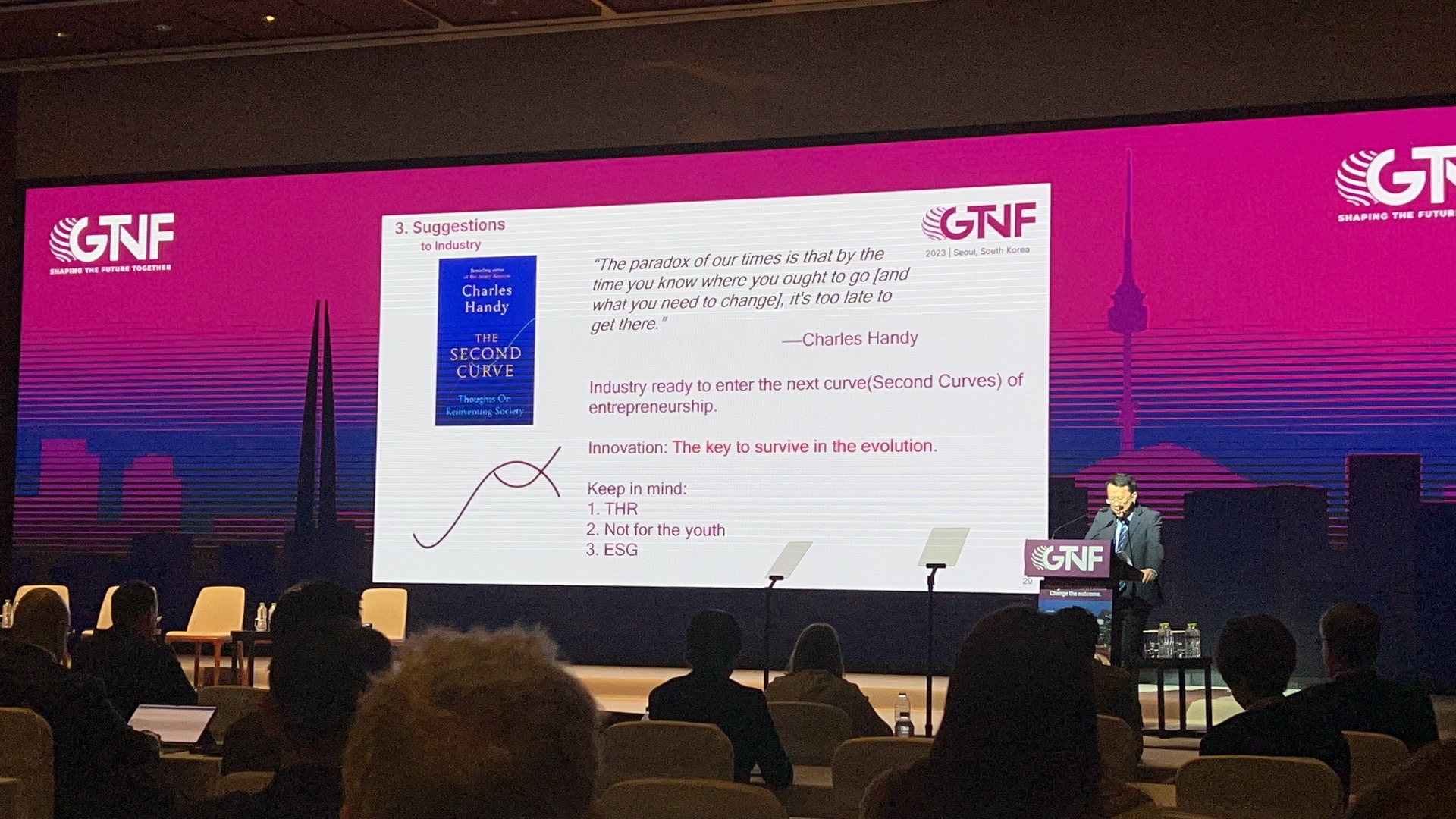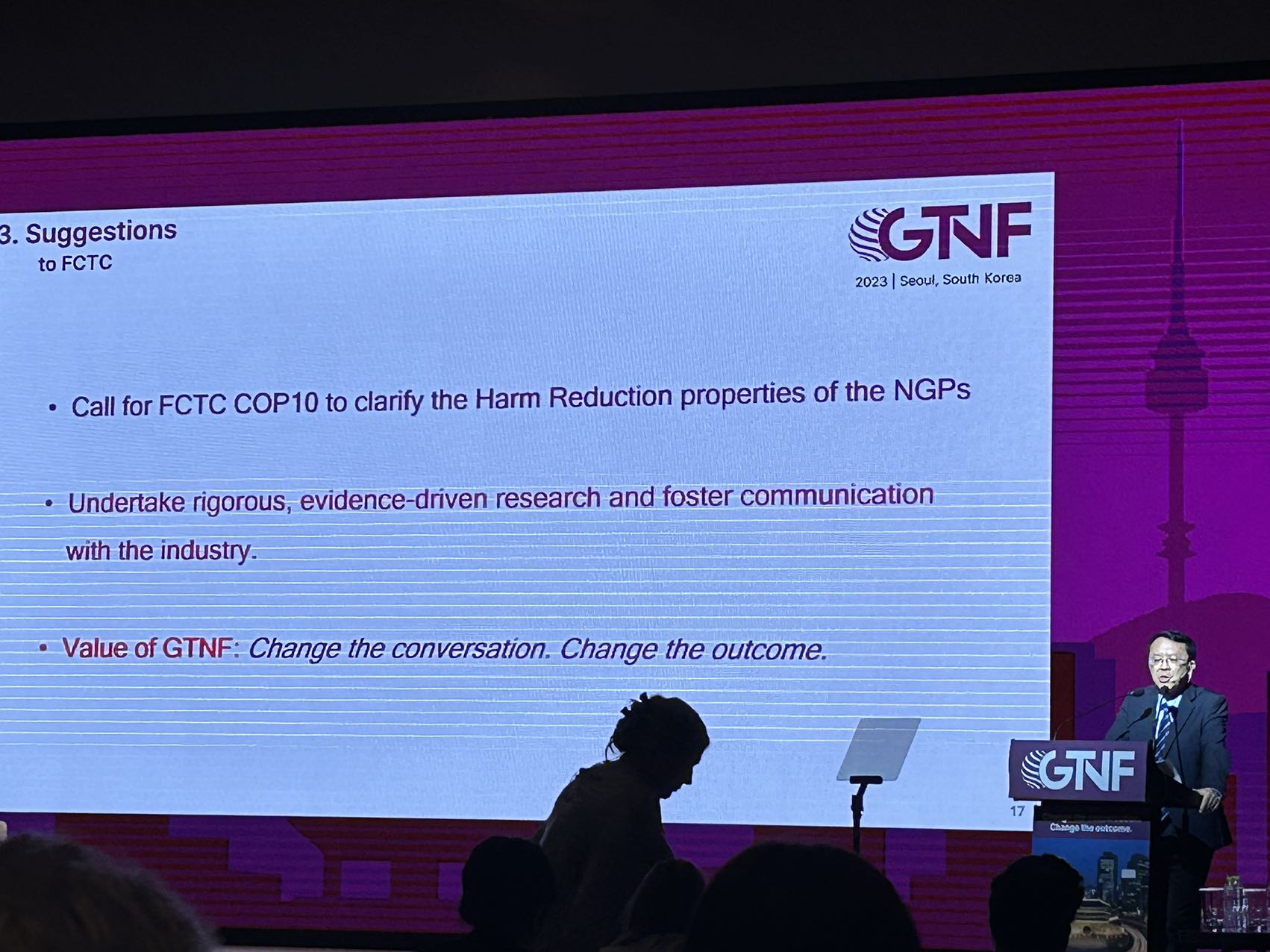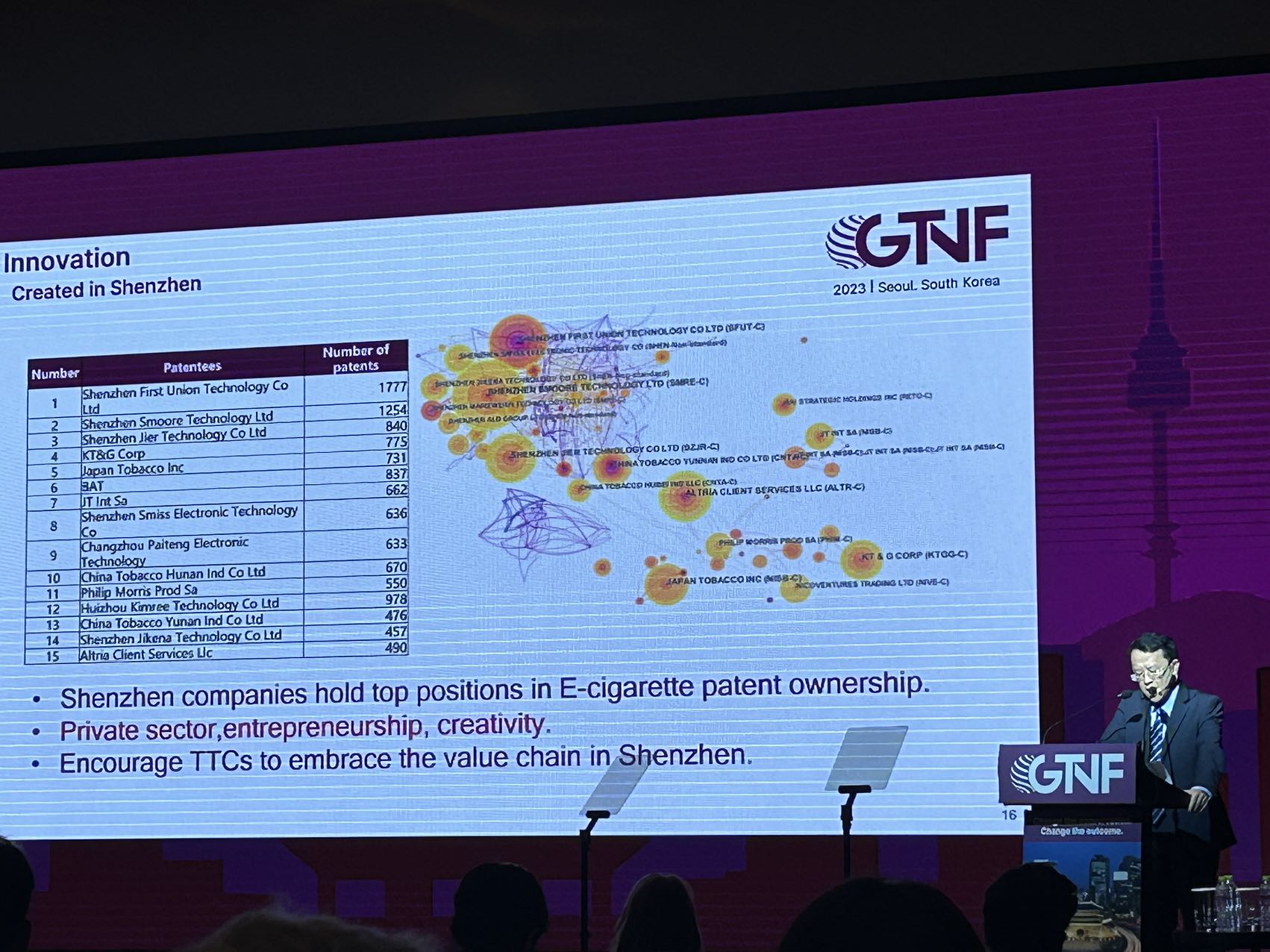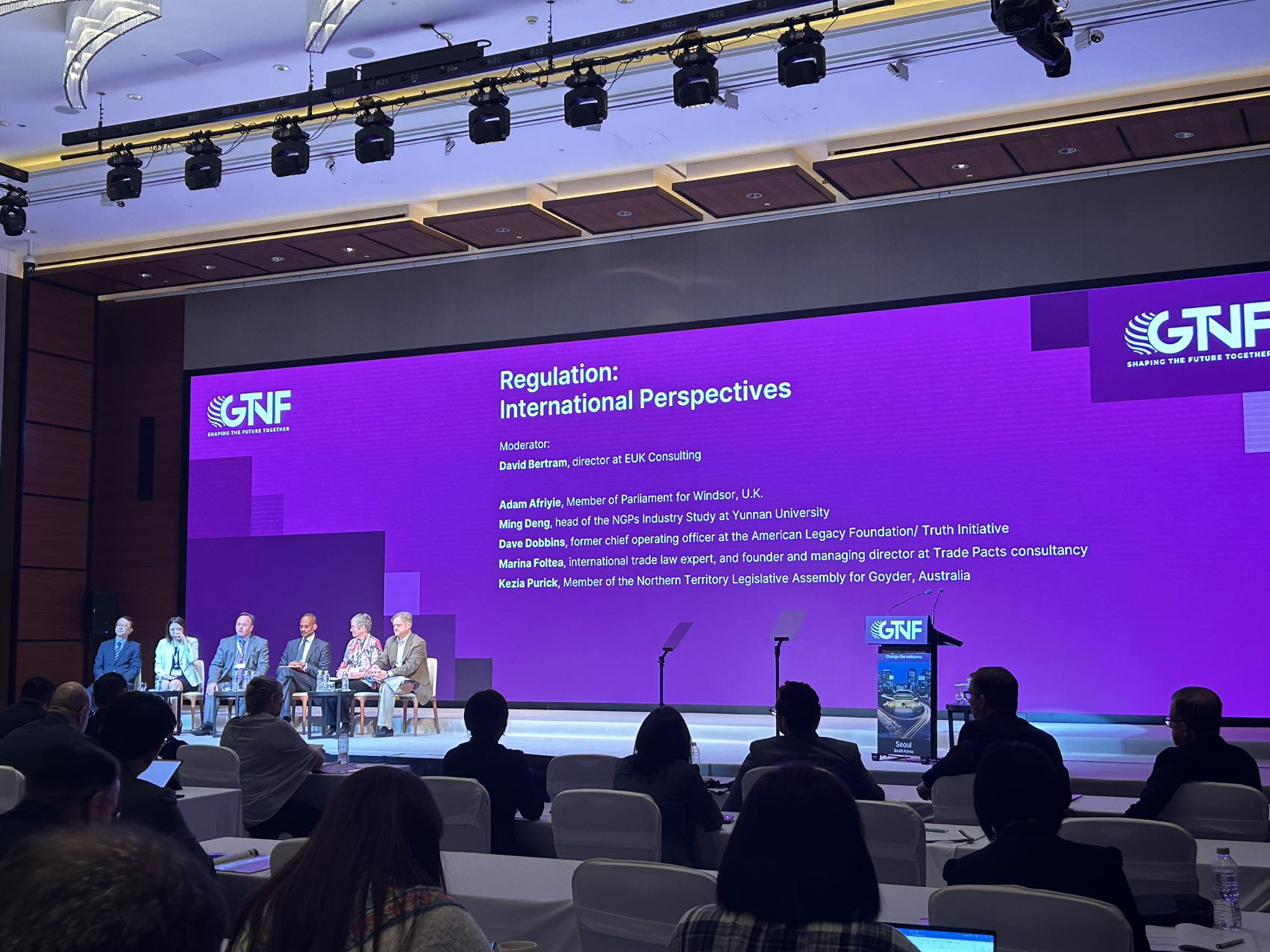
On September 20, 2023, the Global Tobacco and Nicotine Forum (GTNF) entered its second day, with a speech from Dr. Deng Ming, a professor from Yunnan University. Dr. Ming believes that the future of the e-cigarette industry lies in the combination of heat-not-burn (HTP) and vape (VAPE) products, such as "Lil AIBLE" by KT&G. He suggests that the entire industry should look to companies like Tesla to drive innovation and improve quality.
According to the data, Deng Ming is the head of the research on the new tobacco industry at Yunnan University. He has been conducting research on the tobacco industry since joining the "China's Accession to the Framework Convention on Tobacco Control" project in 2004, and has led several research projects on tobacco industry organization. In recent years, he has been actively studying the next generation of new tobacco industry, such as the regulation of e-cigarettes in China, the evolution of heated tobacco products, and global flavor regulation trends.

Dr. Deng Ming speaks at GTNF | Source: 2firsts
In regard to market research on the emerging tobacco and nicotine products industry, Deng Ming emphasizes the need for FCTC COP10 (World Health Organization Framework Convention on Tobacco Control Conference of the Parties 10) to clearly define the harm reduction effects of NGP products in order to promote industry development.

Dr. Deng Ming speaks at GTNF | Source: 2firsts
Meanwhile, he is also calling for collaboration between the industry and tobacco-related companies in Shenzhen, China - home to the largest number of Next Generation Products (NGPs) patents. 2FIRSTS has noted that FirstUnion Technologies, a well-known e-cigarette company based in Shenzhen, leads the patent count with 1,777 patents. Deng Ming encourages the tobacco industry to continuously innovate, suggesting that they should learn from companies like Tesla and drive innovation and improvements in quality.

Dr. Deng Ming speaks at GTNF | Source: 2firsts
In the subsequent panel discussion on "Regulation: International Perspectives," Deng Ming emphasized that regulatory policies in the Asian region are diverse, but China, Japan, and South Korea have set good examples in terms of smoking control measures. He cited examples such as the establishment of designated smoking areas in these countries and the provision of smoking cessation alternatives. In South Korea, violators of smoking regulations are fined by the police, highlighting the importance of enforcement measures.

Dr. Deng Ming speaks at GTNF | Source: 2firsts
In addition, Deng Ming also raised a thought-provoking question: what is the future of disposable e-cigarettes? He encouraged regulatory agencies and industry experts to collectively explore this issue to ensure the sustainable development of the industry. He emphasized the importance of innovation and collaboration in the NGP industry and believed that learning from experiences in other industries could help drive the future development of tobacco and nicotine products.
During the event, someone raised a question regarding a provision in China's "e-cigarette management measures" that states, "It should comply with the laws, regulations, and standards of the destination country or region; if there are no relevant laws, regulations, and standards in the destination country or region, it should comply with China's relevant laws, regulations, and standards." In response, Deng Ming explained that China's policy is highly transparent and relevant information can be found on government websites.
Specifically, China employs a policy system known as 1+2+N, with "N" representing various details. The policy regarding destination countries for exports implies that if the country of destination has relevant tobacco policies and regulations, Chinese exporting companies will adhere to local policies. However, if the destination country does not have such policies, Chinese exporters will follow China's policies for exports. This ensures that Chinese tobacco products meet local regulations and standards in international markets.
Note: Next Generation Products (NGP) refers to a new generation of products in the tobacco and nicotine industry, typically different from traditional cigarettes. NGPs include, but are not limited to, e-cigarettes, heat-not-burn products (HNBP), chewing tobacco, nicotine gum, and nicotine patches.
We welcome news tips, article submissions, interview requests, or comments on this piece.
Please contact us at info@2firsts.com, or reach out to Alan Zhao, CEO of 2Firsts, on LinkedIn
Notice
1. This article is intended solely for professional research purposes related to industry, technology, and policy. Any references to brands or products are made purely for objective description and do not constitute any form of endorsement, recommendation, or promotion by 2Firsts.
2. The use of nicotine-containing products — including, but not limited to, cigarettes, e-cigarettes, nicotine pouchand heated tobacco products — carries significant health risks. Users are responsible for complying with all applicable laws and regulations in their respective jurisdictions.
3. This article is not intended to serve as the basis for any investment decisions or financial advice. 2Firsts assumes no direct or indirect liability for any inaccuracies or errors in the content.
4. Access to this article is strictly prohibited for individuals below the legal age in their jurisdiction.
Copyright
This article is either an original work created by 2Firsts or a reproduction from third-party sources with proper attribution. All copyrights and usage rights belong to 2Firsts or the original content provider. Unauthorized reproduction, distribution, or any other form of unauthorized use by any individual or organization is strictly prohibited. Violators will be held legally accountable.
For copyright-related inquiries, please contact: info@2firsts.com
AI Assistance Disclaimer
This article may have been enhanced using AI tools to improve translation and editorial efficiency. However, due to technical limitations, inaccuracies may occur. Readers are encouraged to refer to the cited sources for the most accurate information.
We welcome any corrections or feedback. Please contact us at: info@2firsts.com

